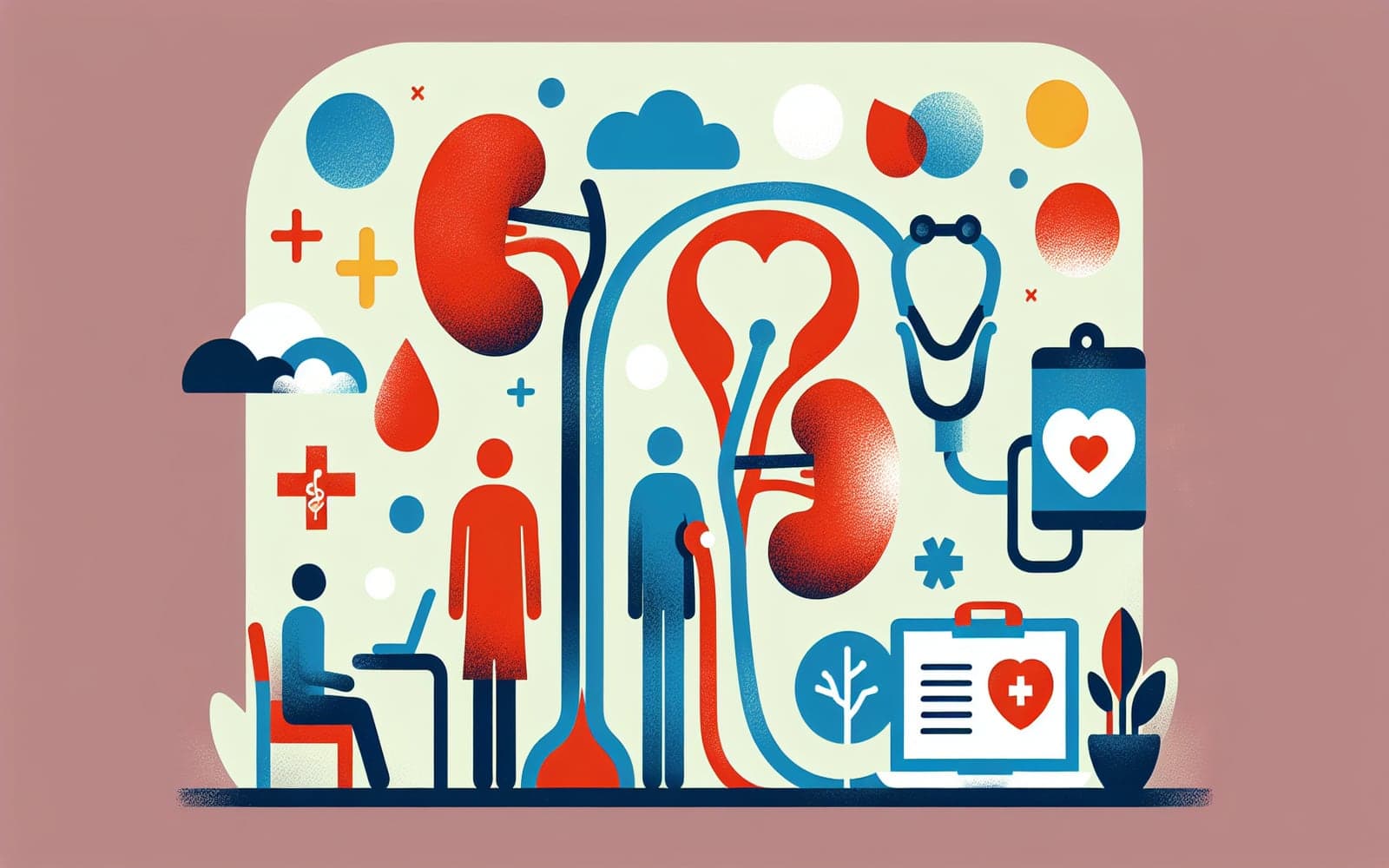Can Medical Therapy Help in Renal Artery Stenosis?
Published: Jun 21, 2024
Discover how medical therapy can be a first-line treatment option for managing the symptoms of renal artery stenosis.
Contents
Medical Therapy Overview
Medical therapy plays a crucial role in managing bilateral renal artery stenosis. It often involves using medications like ACE inhibitors or ARBs, which help control high blood pressure by relaxing blood vessels. These medications are particularly effective when combined with diuretics, which help reduce fluid buildup in the body.
Risks of Medical Therapy
While effective, medical therapy comes with its own set of risks. For instance, ACE inhibitors may cause a rise in creatinine levels, indicating worsening kidney function if not properly monitored. Patients must be closely observed for any signs of kidney injury or deteriorating function, especially when undergoing therapy.

Monitoring and Adjustments
Monitoring is vital for patients on medical therapy for renal artery stenosis. Regular check-ups can help in adjusting medication doses to minimize side effects and maximize benefits. Sometimes, discontinuing diuretics or changing to alternative medications can prevent kidney function from worsening.
Frequently Asked Questions
ACE inhibitors help relax blood vessels to reduce blood pressure.
Yes, risks include potential kidney injury and increased creatinine levels.
Regular monitoring and medication adjustments help minimize risks.
Diuretics are often used alongside ACE inhibitors or ARBs.
Key Takeaways
Medical therapy can effectively manage renal artery stenosis but requires close monitoring for safety.
Explore your treatment options by consulting with Doctronic today.Related Articles
References
Hackam DG, Duong-Hua ML, Mamdani M, et al. Angiotensin inhibition in renovascular disease: a population-based cohort study. Am Heart J 2008; 156:549.
Hricik DE, Dunn MJ. Angiotensin-converting enzyme inhibitor-induced renal failure: causes, consequences, and diagnostic uses. J Am Soc Nephrol 1990; 1:845.
Always discuss health information with your healthcare provider.